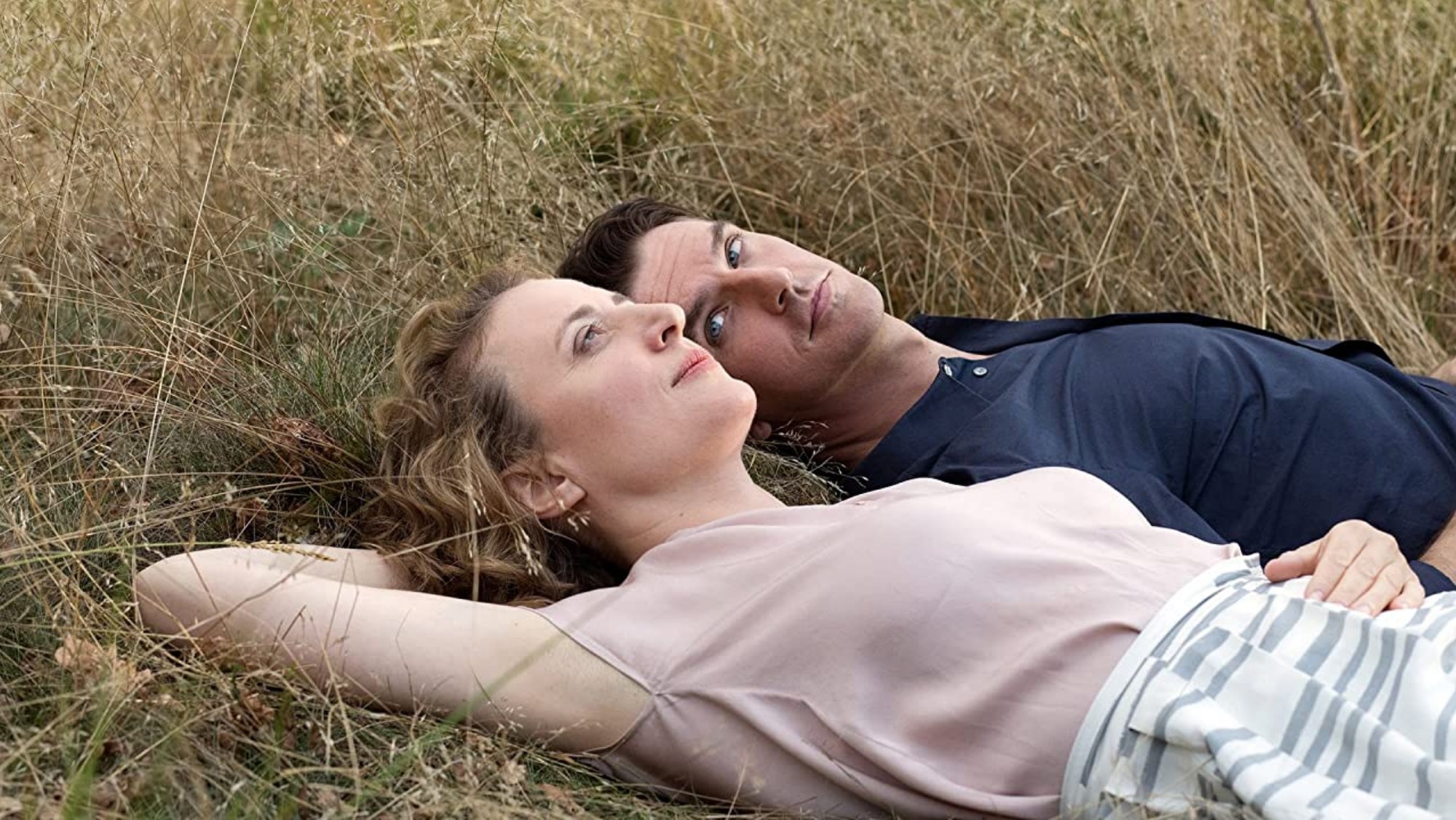
- Festivals
2021 TIFF Notes: “I’m Your Man” (2021)
How would you react if the perfect partner were created for you – designed to respond to your every conscious or unconscious need? That’s the premise behind Maria Shrader’s German film, I’m Your Man, which captured our imagination at the Toronto International Film Festival. German actress Maren Eggert plays scientist Alma Felser, a single woman who is extremely cynical and reluctant to take on a job evaluating a new line of humanoid cyborgs to determine what rights they should be granted in society. She believes it takes more than millions of data points collected from the human population to make a human being, but when research funding for her anthropological studies at Berlin’s Pergamon Museum is dangled, she agrees to a three-week trial with Tom (Dan Stevens).
The film first premiered at the Berlin Film Festival and won a Silver Bear Best Actress award for Maren Eggert but one of the other compelling reasons to watch is the surprising casting of Dan Stevens – Downton Abbey’s Matthew Crawley – as a German-speaking English-accented, rumba-dancing robot. As Tom, he’s relentlessly eager to serve one purpose: Alma’s happiness.
Director Maria Schrader had been looking for someone who may not be German when she began casting her cyborg. “The role of Tom was tough to cast; a machine provided with the best parts of humanity,” she elaborates. “From the moment we started, I thought it would be wonderful to find someone who brought something foreign to the language, so we were searching in Europe and other countries and then I was told Dan Stevens speaks German, so we met via Zoom. Of course, I knew his work but now I can’t imagine anyone else as Tom because he brought humor and something incredibly precise about his acting and irony and his heart. And he’s good-looking too!” she adds with a laugh, much to the embarrassment of her leading man who has joined her on zoom at TIFF for a press conference.
Stevens – who grew up in London, attended Cambridge, and speaks both German and French fluently – admits there were “several layers” to the challenges of this role. “I’d voiced robots in the past, but this was the first time I’d played one in the flesh,” he says. “To do it in German was an added challenge but it added to the strangeness of the character and the strangeness of the experience, for both me and the character of Tom. We were both just constantly listening and learning and trying to understand and speak German better.”
Multi-hyphenate Maria Schrader was born in Germany and studied drama at Vienna’s Max Reinhardt Seminar. Her acting credits include I Was on Mars (1991), which she co-wrote, Aimée & Jaguar (1999) and the award-winning TV series, Deutschland 83, 86, and 89 (2015, 2018, 2020). She won an Emmy Award for directing the 2020 Netflix four-part limited series, Unorthodox, about an ultra-Orthodox Jewish woman who flees her arranged marriage.
“I was in the mood for something lighter and I thought I’d never done a really insightful love story,” she says of her decision to produce, direct and co-write this adaptation of a short story by Emma Braslavsky. “It turned out to be about a woman and a man who turns out not to be a man, so there was a simplicity about the set-up but there was still depth because, in this story, we could ask new questions about what is love and longing and what is human and what is a robot?”
“In the film, we have this new generation of robots who can be partners and we explore timely questions: will they be legalized in society; can they travel; should they have passports; can they get married?” she says. “We’re already used to robot algorithms for services but what if they get better and can become love partners and life partners and dialogue partners. If they can imitate us to perfection, what then is the difference?”
While Schrader emphasizes the movie is a love story, she’s also eager to push the audience to ask those questions. “What’s wonderful about these robot stories is there is a magical realist element to them and also an element that all we’re really talking about is humanity,” she adds. “The stress of the existence of robots or the idea of them throws up so many questions about who we are and what we might use these robots for so in the end, it says more about ourselves than robotics.”

